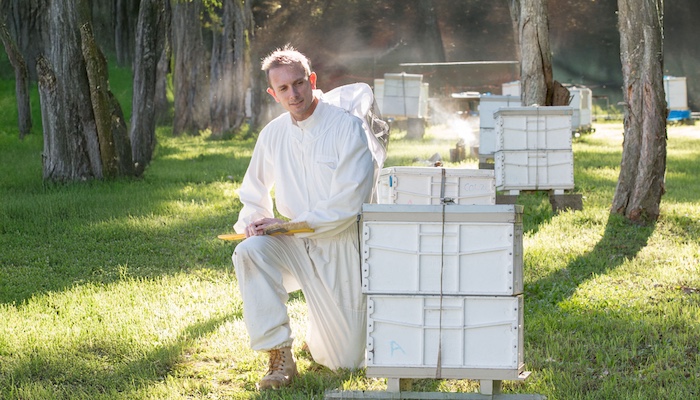The five-year program, funded by Hort Innovation, aims to create a fungal-based control that could slash treatment costs while ditching chemical use in hives.
The project’s Chief Investigator, Associate Professor Fleur Ponton from Macquarie University’s School of Natural Sciences, said the research could transform pest control for Australia's beekeeping industry.
“Varroa mites are an invasive pest of honeybee colonies worldwide, and chemical treatments – which can also harm bees and contaminate honey – are becoming less effective as mites develop resistance,” Associate Professor Ponton said.
“Our goal is to develop a safe, affordable biological control that works with nature, not against it.”
The project unites researchers from Macquarie University, NSW Department of Primary Industries, Southern Cross University, and the Myco-vation Research company to tackle a pest threatening up to $1.31 billion in agricultural value in Australia alone.
The project will explore the use of naturally-occurring fungi that can kill harmful mites but not harm bees, focusing on two species – Beauveria bassiana and Metarhizium anisopliae – able to survive the warm temperatures inside beehives.
“The project will carefully assess the use of heat-resistant fungi to target varroa mites without impacting bee health or affecting honey,” Associate Professor Ponton said.
Professor Samuel Muller, Executive Dean of the Faculty of Science and Engineering at Macquarie University, said the project shows how research can deliver practical solutions for industry.
“Tackling a major threat to Australian agriculture, this collaboration between universities, government and beekeepers reinforces pollination to help farmers sustain yields and ensuring consumers enjoy high-quality locally grown food," Professor Muller said.



